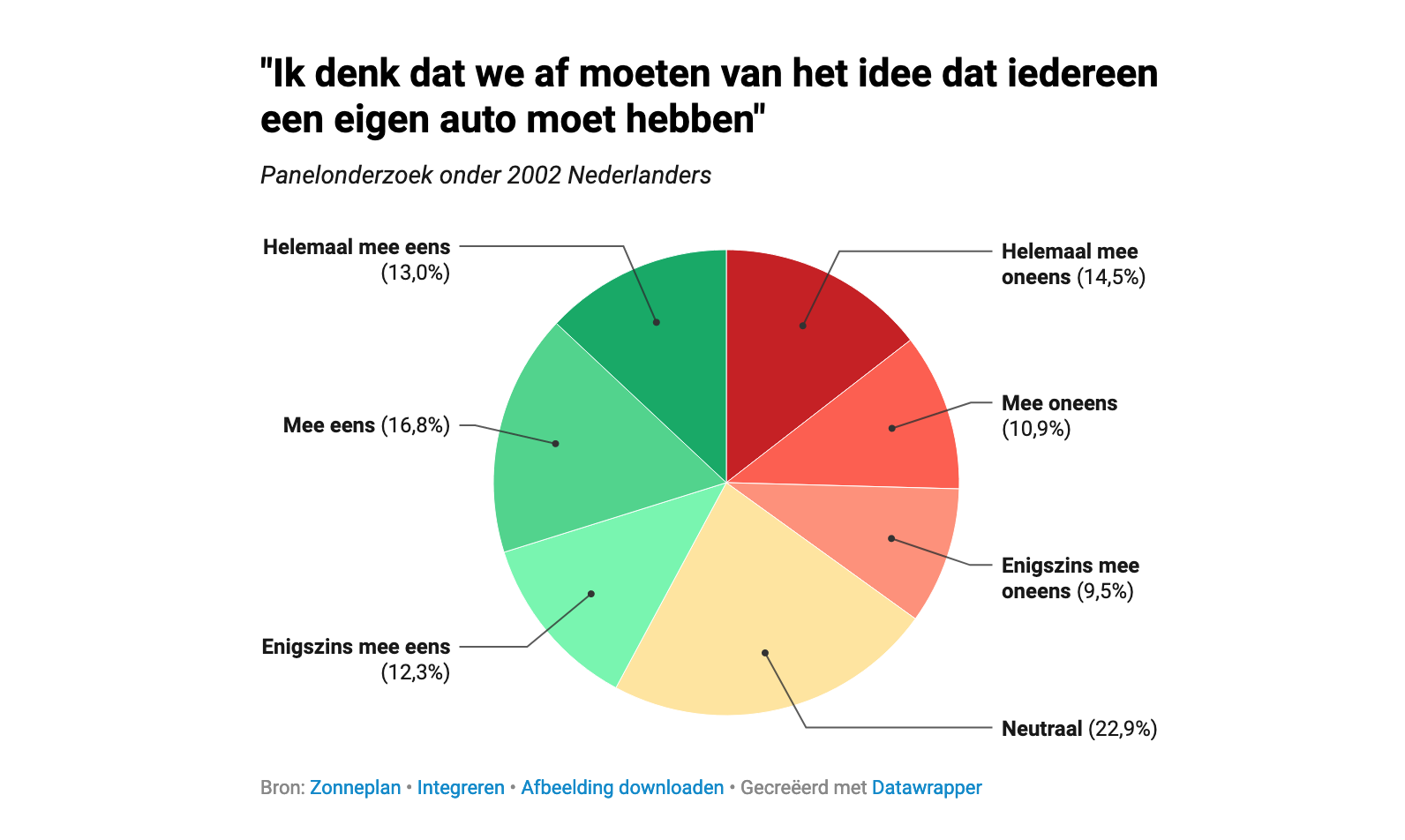
Four out of ten Dutch citizens against owning a car

To the stand “we have to abandon the idea that everyone should have its own car”, more than 40% of the Dutch respondants agreed, some 20% remained neutral, and some 35% were against it /Zonneplan
More than four out of ten Dutch citizens think their country has to eliminate the idea that everyone has to own a car. Energy provider Zonne


Comments
Ready to join the conversation?
You must be an active subscriber to leave a comment.
Subscribe Today